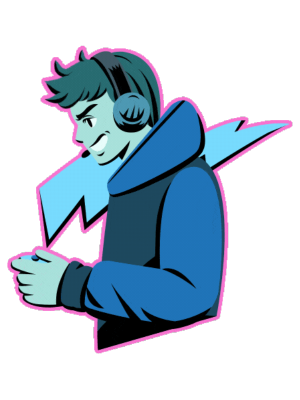Introduction
Video games have evolved far beyond solitary entertainment. In the vast, interconnected digital landscape, communities have flourished around them, serving as social hubs where players not only find fun but also friendship, rivalry, and camaraderie. These communities are dynamic, shaping the way millions engage with their favorite video games, whether casually or competitively.
Today’s gaming communities transcend the games themselves. They provide platforms for connection, spaces for social bonding, and arenas for intense competition. Whether players are exploring worlds with friends or pushing themselves in competitive tournaments, these communities are essential pillars in the modern gaming ecosystem. Much of this experience is shaped by innovations from video game development companies and the developers behind them.
Unlock the Origins of Gaming Technology Today

The Evolution of Video Game Communities
In the early days, video games were a personal affair. A player and their console have a one-on-one relationship with the screen. Yet, with the rise of multiplayer gaming in the 1990s, everything changed. Games like Quake, StarCraft, and Ultima Online introduced online multiplayer, allowing players to interact in real-time. These small groups of like-minded players were just the beginning.
As the internet grew, so did the conversation around games. Forums, chat rooms, and fan websites began to crop up around popular titles. Players discussed strategies, speculated on upcoming releases, and built lasting relationships with others they might never meet in person. The lines between the digital and the real began to blur, all aided by innovations from video game development services.
The role of a video game development company in creating these experiences is critical. Games like World of Warcraft and League of Legends owe much of their success not just to gameplay, but to the communities they helped build. Many studios and teams continuously refine their games, ensuring they meet the evolving needs of their players.
Social media and platforms like Twitch and YouTube pushed these communities even further. Content creators became central figures, expanding game audiences by sharing experiences, strategies, and tutorials. Players could now watch, learn, and engage with communities centered around both the game and the personalities shaping the space. Video game development services help ensure these games are compatible with streaming platforms, making them even more accessible.
Connection- The Heartbeat of Gaming Communities
At their core, video game communities are about connection. Whether players are logging into a multiplayer game or jumping into a Reddit discussion, they seek interaction with others who share their interests. These conversations go beyond casual chat, helping build a sense of belonging.
For many, these communities serve as a refuge. Players find support by sharing victories and defeats. The bonds formed can often be stronger than those in real life because they are built on shared passions and goals. Video game development companies understand the importance of building platforms that allow players to connect and communicate easily.
Hiring the right video game developer is crucial in shaping these experiences. Developers who emphasize social features like in-game chat, matchmaking, and guild creation help build strong communities. This is why many companies hire video game developers with the skills to integrate social and competitive elements into games from the start.
Beyond the game itself, players often meet at conventions, tournaments, and gaming events. Gatherings like PAX or BlizzCon bring online friends together, deepening the bonds that started digitally.
Inclusivity and Diversity- Expanding the Circle
One of the most remarkable aspects of gaming communities is their inclusivity. As the gaming industry has grown, so has the diversity within its communities. Spaces now welcome players from all backgrounds, nationalities, genders, and sexual orientations. Groups like Women in Games and GaymerX ensure marginalized voices have a place in gaming, creating communities where everyone feels welcome.
However, this inclusivity starts at the development level. Video game development services are essential in ensuring games reflect these values. It’s not just about gameplay anymore; it’s about creating worlds where everyone feels seen.
Still, toxicity remains an issue in some gaming spaces. Bullying, harassment, and exclusion persist. Yet, developers and community leaders are working to create safer, more inclusive spaces by introducing better moderation tools and fostering discussions about respectful behavior. The aim is to make sure every player can connect in positive ways.
Competition- The Pulse that Drives Many
While connection forms the foundation of many communities, competition is what drives others. Video games have always had a competitive side, from high scores in arcades to ranked multiplayer matches. For many, the thrill of outsmarting an opponent or improving their skills is the main appeal.
In games like League of Legends, Dota 2, and CS, the challenge is clear- win, improve, and climb the ranks. Players from teams, sometimes with strangers, sometimes with friends, all working toward victory. These communities revolve around shared goals, and the competitive bonds formed here can be as strong as those in more casual spaces.
Esports- A New Frontier
Esports has become a global phenomenon, with professional players, teams, and leagues that rival traditional sports. The appeal of esports is undeniable- huge prize pools, sponsorships, and millions of fans tuning in to watch live tournaments. This competitive intensity pushes players to continuously improve, fueling fierce rivalries and deep friendships alike.
For game developers, the rise of esports presents new challenges. Games need to be balanced, engaging, and accessible to a wide audience. Many studios turn to outsourcing video game development to ensure their games meet the high standards required for competitive play. This collaboration ensures that games are optimized for esports while maintaining a global appeal.
But esports aren’t just for professionals. Grassroots competitions allow amateur players to test their skills, keeping the spirit of competition alive. These communities, though smaller, are often just as passionate, as players work their way up the competitive ladder.
Connection Meets Competition- The Sweet Spot
Some of the most successful gaming communities strike a balance between connection and competition. Games like World of Warcraft and Destiny 2 blend cooperative gameplay with competitive elements, allowing players to team up for raids while also competing for rankings.
In World of Warcraft, guilds often compete for prestige. Who can defeat a raid boss first? But within those guilds, a sense of camaraderie thrives. Players share resources, offer help, and work together for the greater good. Here, connection and competition aren’t opposing forces; they complement each other.
Casual vs. Hardcore- Different Communities, Same Passion
Not all video game communities are the same. Some, like those around StarCraft II or Street Fighter, are hyper-competitive. Players focus on mastering mechanics and outplaying their opponents. For them, the thrill of competition is everything.
On the other hand, games like Animal Crossing or Stardew Valley cater to more relaxed players. These communities focus less on winning and more on sharing experiences, trading items, and enjoying the game’s simplicity. Yet, even in these laid-back spaces, there’s room for friendly competition. Who has the best-decorated island or the most efficient farm?
The diversity of gaming communities is what makes them so special. There’s a place for everyone, whether you’re a casual player looking to unwind or a competitive player aiming for the top.
The Future of Video Game Communities
Looking ahead, the future of video game communities promises even more innovation. Technologies like virtual reality (VR) and augmented reality (AR) are already reshaping how players interact. Imagine stepping into a virtual gaming convention where you can meet fellow players as lifelike avatars or compete in immersive esports tournaments.
Mobile gaming is also growing, making gaming more accessible than ever. Games like PUBG Mobile and Genshin Impact bring players from all backgrounds into shared spaces, expanding communities globally.
Dive Into Gaming's History for Future Innovation

Conclusion: More Than Just Games
Video game communities are more than just groups of people who play the same games. They are living ecosystems filled with connection, competition, creativity, and collaboration. These spaces are where friendships are formed, rivalries are sparked, and passions are shared.
As the gaming world continues to evolve, so too will its communities always growing, always inspiring. Behind the scenes, video game development services and the decision to hire video game developers play a critical role in shaping these experiences, ensuring that games not only meet player expectations but also foster the connections and competition that keep communities thriving.



